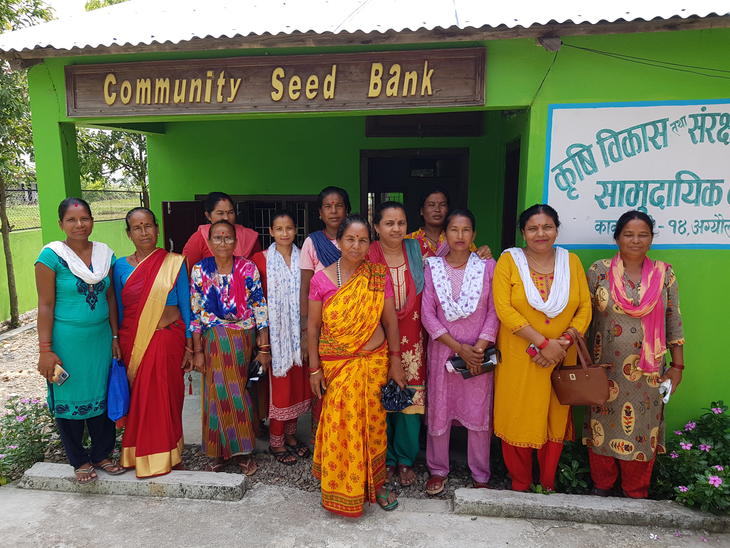
Who are the farmers who should be included in the process?
Farmers are not defined in the International Treaty. However, in several provisions, the Treaty emphasizes farmers who conserve and develop plant genetic resources for food and agriculture, particularly so in the provisions on Farmers' Rights.
Thus, there are basically two approaches to this question. Either participation is limited to the farmers who conserve and develop crop genetic diversity, or all farmers should be included, disregarded of choice of propagating material and technology. The latter would mean that large scale farmers, solely using commercial and genetically homogenous crop varieties, would be entitled to participate in the implementation process on an equal foot with farmers involved in the maintenance of crop genetic diversity.
There are arguments for and against the inclusion of farmers who are not involved in the maintenance of crop genetic diversity. An argument for their inclusion is that Farmers' Rights should extend to all farmers, as they are based on the customary practices of farmers independently of what propagating material and technologies they choose to use today. Also farmers to various degrees depend on the rights for example to use, exchange and sell farm-saved seed, and it would be difficult to differentiate between farmers in this regard.
An argument against the inclusion of farmers, who are not involved in the maintenance of crop genetic resources, is that they may have different interests then those involved in the maintenance of crop genetic diversity. For example, they may be more interested in legislation and incentive structures favouring the use of commercial plant varieties than crop genetic diversity. This would not be beneficial for the implementation of Farmers' Rights in the framework of the International Treaty. Thus, involving these farmers may not necessarily contribute to solutions in line with the intentions behind the International Treaty.
Options:
 As a minimum requirement, farmers involved in the maintenance of crop genetic diversity, in terms of conservation and sustainable use, should be involved in the process of implementing Farmers' Rights.
As a minimum requirement, farmers involved in the maintenance of crop genetic diversity, in terms of conservation and sustainable use, should be involved in the process of implementing Farmers' Rights. Alternatively all categories of farmers can be involved. However, it is then important to differentiate between the categories in terms of primary target groups of measures for Farmers' Rights, as indicated in the International Treaty, and other categories. It is also necessary to be aware of potentially diverging interests in this regard and give priority to the category of farmers involved in conservation and development of crop genetic diversity.
Alternatively all categories of farmers can be involved. However, it is then important to differentiate between the categories in terms of primary target groups of measures for Farmers' Rights, as indicated in the International Treaty, and other categories. It is also necessary to be aware of potentially diverging interests in this regard and give priority to the category of farmers involved in conservation and development of crop genetic diversity.